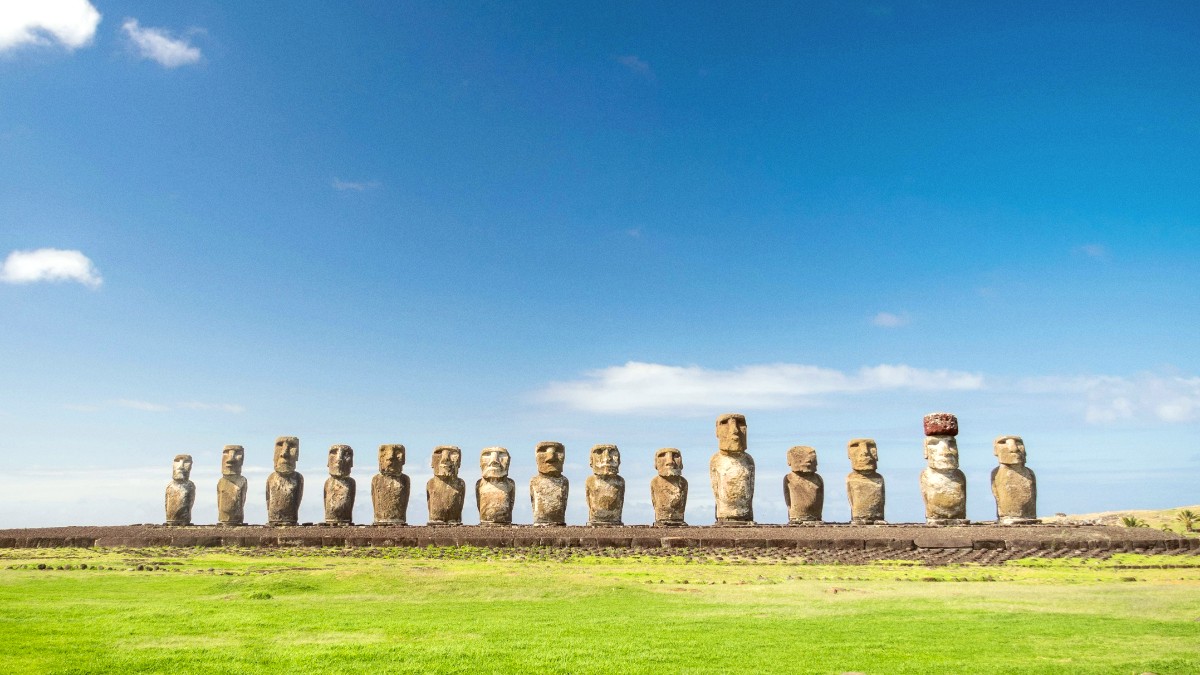
Chile
Rapa Nui National Park, an UNESCO World Heritage site, protects archaeological and natural heritage. A Marine Protected Area (MPA) around Easter Island conserves unique marine biodiversity.
Due to isolation, waste management is a challenge. Waste is processed on-island or shipped at cost. Efforts are made for recycling, but facilities remain basic.
Freshwater is precious, relying on rainwater and groundwater. Be mindful of usage. Take shorter showers and turn off taps when not in use.
Your actions contribute to preserving this unique ecosystem.
Segregation of waste is encouraged. Minimize your waste during your trip.
Choose accommodations and tour operators committed to responsible tourism.
Consider offsetting the carbon emissions from your flights, especially the long-haul journey to Santiago and the flight to Easter Island.
Equip yourself with products designed to reduce environmental impact during your travels.
Choose operators adhering to park rules and respecting wildlife.
G Adventures: Ethical tour operatorConsider organizations with conservation initiatives, like rainforest protection.
The Rainforest Site (GreaterGood)Your mindful choices protect Easter Island’s unique environment and cultural heritage.
The Rapanui people have a rich, unique cultural heritage.
The Rapanui people actively preserve their language, traditions, and archaeological heritage.
Never climb on or touch the Moai or their platforms (ahu). This is a severe offense and deeply disrespectful to their sacred nature.
All archaeological sites with Moai are considered sacred. Treat them with reverence.
Be mindful when discussing Chilean politics or the island's relationship with mainland Chile, as these can be sensitive topics.
Your choices as a traveler contribute directly to the local community.
Prioritize local restaurants, shops, and tour guides over larger, non-local chains. Your spending directly benefits island families.
Seek out artisan shops selling authentic, locally made handicrafts. Avoid mass-produced souvenirs imported from elsewhere.
For charitable giving, support established local community projects or environmental initiatives rather than individuals.